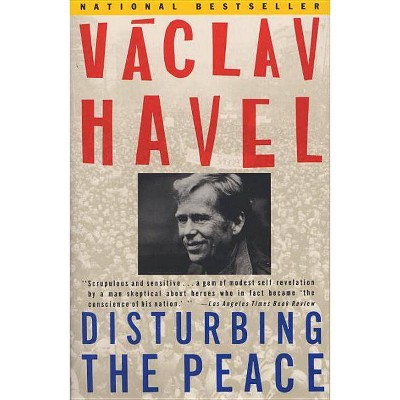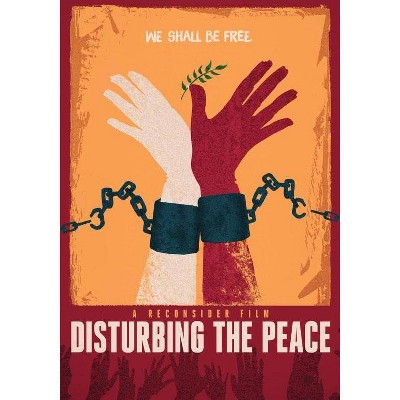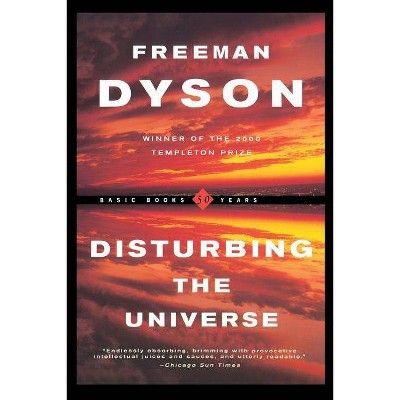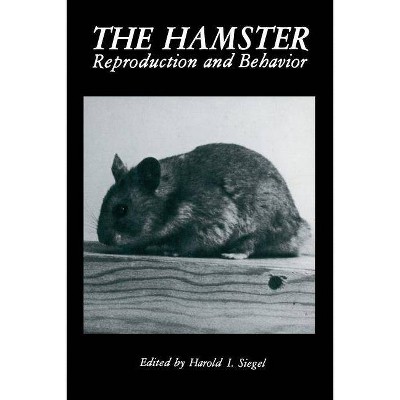Disturbing the War - by Lenny Siegel (Paperback)
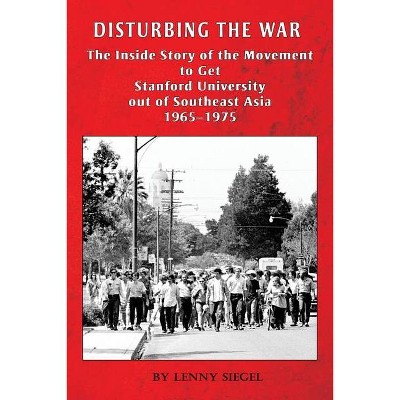
Similar Products
Products of same category from the store
AllProduct info
<p/><br></br><p><b> About the Book </b></p></br></br><p><em>Disturbing the War</em> tells how anti-war activists organized in the late 1960s and early 1970s to halt Stanford University's support for the Southeast Asian War.</p><p><br></p><p/><br></br><p><b> Book Synopsis </b></p></br></br><p>DISTURBING THE WAR: The Inside Story of the Movement to Get Stanford University out of Southeast Asia-1965-1975</p><p></p><p>In the 1960s, Stanford University was already known as one of America's "great research universities." Less known to outsiders, it was an essential cog in the U.S. war machine during the Vietnam War. From the mid-1960s through the end of the Vietnam War in 1975, a dedicated, evolving group of students and other members of the Stanford community challenged that role and the leadership of the university itself.</p><p>Lenny Siegel tells the inside story of the Stanford radical, anti-war student Movement, how activists used research, education, political activity, and direct action to win over their campus cohort, alter Stanford's direction in the world, and lay the foundation for what became known as Silicon Valley. </p><p>As the U.S. appears to be embarking upon a new era of progressive militancy, the Stanford Movement's experiences provide important lessons for new generations of activists. Though organizers today have at their thumb-tips communications tools that sixties activists never dreamed of, the fundamental principles of student and community organizing have not changed.</p><p>At times, Siegel and his fellow protesters broke rules, laws, and even windows. But they believed and continue to insist that what they did was justified by the imperative of halting the extreme violence and gross violations of international law visited upon Southeast Asia in their names.</p><p><br></p><p/><br></br><p><b> Review Quotes </b></p></br></br><br><p>Lenny Siegel, a thoughtful observer as well as a skillful organizer, draws timeless truths from the anti-war insurrections at Stanford in the '60s and '70s. Young people who are demonstrating today on race and climate could learn much from Siegel's history of Stanford's most turbulent decade.</p><p><br></p><p>Denis Hayes</p><p>Former Stanford Student Body President </p><p>Principal Earth Day organizer</p><p><br></p><p>Lenny Siegel traces the development of the April Third Movement and the nine-day student takeover of the Applied Electronics Lab that forced Stanford to halt classified research on electronic warfare against the people of Vietnam. From the day Siegel signed me up for SDS in 1967, my life has never been the same. The Stanford anti-war movement provided the context for my social activism and that of so many others. This well-researched and engagingly written book is a must-read for all who seek to understand how the organized opposition to the Vietnam War informed the anti-imperialist and social justice movements that followed.</p><p> </p><p>Marjorie Cohn</p><p>Professor Emerita, Thomas Jefferson School of Law</p><p>Former President, National Lawyers Guild</p><p><br></p><p>Lenny Siegel has written a moving account of his decade-long struggle to stop America's terrible war in Indochina.<em> Disturbing the War</em> is an on-the ground account written by someone who has put his career and life on the line for a cause and a set of ideals that in many ways still echo in the political and cultural wars that divide America today. Indeed, the Stanford anti-war movement helped reframe the way technology was viewed in what became Silicon Valley and helped form the hobbyist culture that led to personal computing.</p><p><br></p><p>John Markoff</p><p><em>What the Dormouse Said: How the Sixties Counterculture Shaped the Personal Computer Industry</em></p><p>Former technology reporter, <em>New York Times</em></p><br>
Price History
Price Archive shows prices from various stores, lets you see history and find the cheapest. There is no actual sale on the website. For all support, inquiry and suggestion messages communication@pricearchive.us

